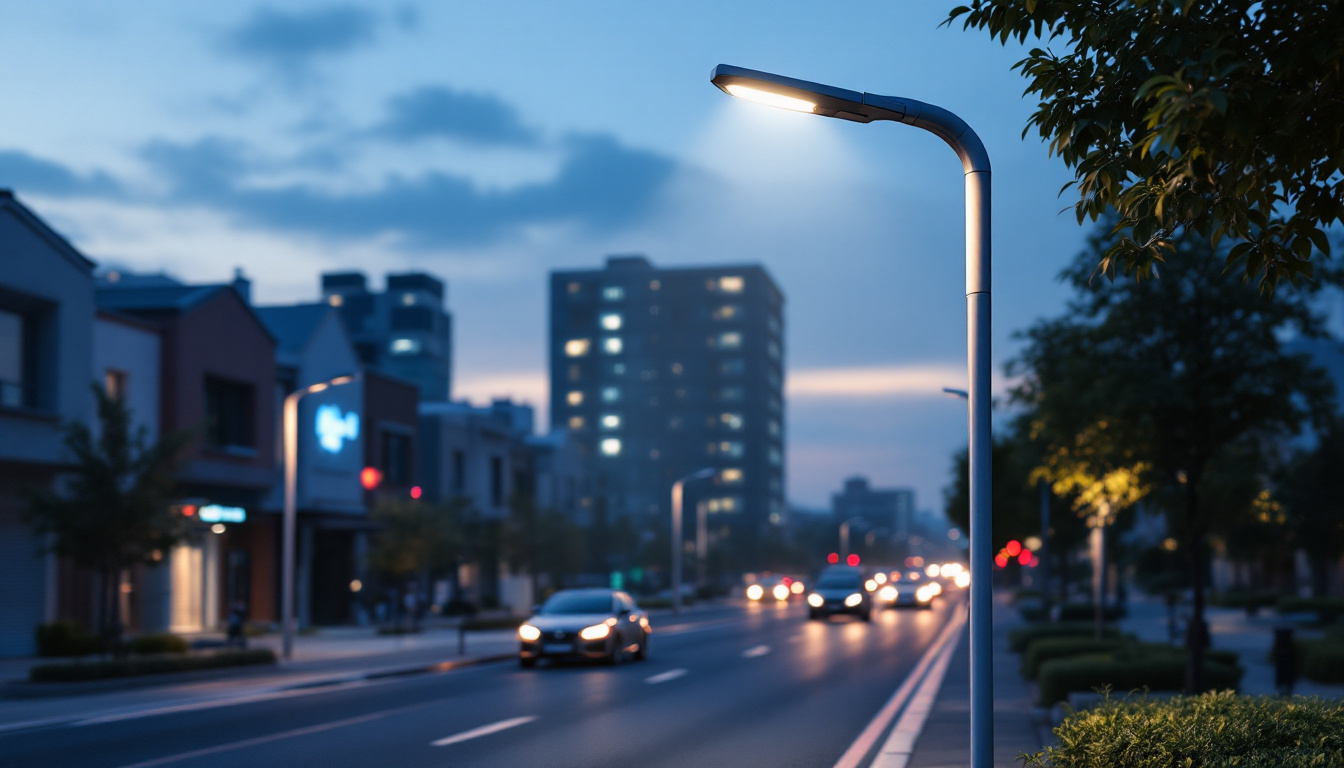

As the demand for sustainable and energy-efficient solutions continues to rise, solar garden lighting has emerged as a popular choice among homeowners and lighting contractors alike. This article delves into the pros and cons of solar garden lighting, providing valuable insights for lighting contractors considering this technology for their projects.
Solar garden lighting utilizes photovoltaic cells to convert sunlight into electricity, which is then stored in batteries for use during the night. This innovative approach not only reduces energy costs but also minimizes the environmental impact associated with traditional lighting solutions. For lighting contractors, understanding the mechanics and benefits of solar garden lighting is essential for making informed recommendations to clients. The growing popularity of solar lighting is also fueled by advancements in technology, which have led to more efficient solar panels and longer-lasting batteries, making these systems more reliable than ever before.
Solar lights are equipped with solar panels, batteries, and LED bulbs. During the day, the solar panels absorb sunlight and convert it into electrical energy, which charges the batteries. At night, the stored energy powers the LED bulbs, illuminating gardens, pathways, and outdoor spaces. This self-sustaining system eliminates the need for hardwiring and external power sources, making installation straightforward and cost-effective. Additionally, many solar lights come with built-in sensors that automatically turn the lights on at dusk and off at dawn, further enhancing their convenience and energy efficiency. This automation not only saves energy but also ensures that your outdoor spaces are always beautifully lit when needed.
There is a diverse range of solar garden lights available, catering to various aesthetic preferences and functional needs. Some common types include:
Each type offers unique benefits, and understanding these can help lighting contractors suggest the most suitable options for their clients. For instance, pathway lights not only guide guests safely but can also add a charming touch to the landscape, while spotlights can be strategically placed to create dramatic effects that draw attention to particular features of the garden. Furthermore, solar string lights have gained immense popularity for their versatility; they can be draped over trees, fences, or pergolas, transforming any outdoor space into a magical retreat. As technology continues to evolve, new designs and functionalities are emerging, allowing homeowners to customize their outdoor lighting in ways that were previously unimaginable.
Solar garden lighting presents numerous benefits, making it an attractive option for lighting contractors and their clients. Here are some of the key advantages:
One of the most significant advantages of solar garden lighting is its cost efficiency. Since solar lights rely on sunlight, they do not incur electricity costs. Moreover, the installation process is typically simpler and less expensive than traditional lighting, which often requires extensive wiring and electrical work. This can lead to substantial savings for both contractors and homeowners. Furthermore, many solar lights come with built-in sensors that automatically turn the lights on at dusk and off at dawn, ensuring energy is used only when needed. This feature not only enhances convenience but also maximizes the lifespan of the lighting fixtures.
Solar garden lighting is an eco-friendly choice, as it harnesses renewable energy. By reducing reliance on fossil fuels, solar lights contribute to lower carbon emissions and a smaller ecological footprint. For environmentally conscious clients, this aspect can be a strong selling point. Additionally, the use of solar lighting can help promote biodiversity in garden spaces. By illuminating pathways and garden features without the heat generated by traditional lights, solar fixtures can create a more inviting environment for nocturnal wildlife, encouraging a balanced ecosystem.
Solar lights are generally easy to install, requiring no specialized electrical skills. This simplicity allows lighting contractors to complete projects more quickly, increasing efficiency. Additionally, solar lights typically require minimal maintenance, as they do not have wires that can fray or become damaged. Regular cleaning of the solar panels and occasional battery replacement are usually all that is needed to keep them functioning optimally. The durability of many solar lights also means they can withstand various weather conditions, making them a reliable choice for outdoor settings. Many models are designed with robust materials that resist rust and corrosion, ensuring they remain functional and aesthetically pleasing for years to come.
Another notable advantage of solar garden lighting is its versatility in design. Available in a wide range of styles, colors, and sizes, solar lights can complement any garden aesthetic, from modern minimalist to rustic charm. This variety allows homeowners to express their personal style while enhancing the beauty of their outdoor spaces. Additionally, solar lights can be strategically placed to highlight specific features, such as flower beds, sculptures, or pathways, creating a visually appealing nighttime landscape. With options like string lights, lanterns, and spotlights, contractors can easily tailor their lighting solutions to meet the unique needs of each project.
While solar garden lighting offers many advantages, there are also challenges that lighting contractors should consider. Understanding these potential drawbacks can help in managing client expectations and project planning.
The performance of solar garden lighting is heavily reliant on sunlight exposure. In regions with limited sunlight or during periods of inclement weather, the efficiency of these lights can diminish. This can lead to inadequate illumination during the night, particularly in winter months or cloudy climates. Lighting contractors must assess the specific conditions of a project site to determine if solar lighting is a viable option.
Although solar lights can save money in the long run, the initial investment can vary significantly based on quality. Lower-priced solar lights may not perform well or last long, leading to potential dissatisfaction for clients. Lighting contractors should be prepared to educate clients on the importance of investing in high-quality products that offer reliable performance and durability.
Solar lights, particularly those that use LED technology, may not provide the same brightness levels as traditional lighting options. While advancements in solar technology have improved brightness, some clients may still prefer the intensity of wired lighting solutions. Additionally, the aesthetic appeal of solar lights can vary, and contractors should work with clients to select designs that complement their outdoor spaces.
For lighting contractors looking to incorporate solar garden lighting into their offerings, several best practices can enhance project outcomes and client satisfaction.
Before recommending solar lighting solutions, it is essential to conduct thorough site assessments. This includes evaluating sunlight exposure, potential obstructions, and the overall layout of the garden or outdoor space. Understanding these factors will enable contractors to make informed decisions about the placement and type of solar lights to use.
Education is key when it comes to solar garden lighting. Contractors should take the time to explain how solar lights work, their benefits, and any limitations. Providing clients with realistic expectations regarding performance and maintenance can foster trust and satisfaction with the final installation.
To cater to diverse client preferences, lighting contractors should offer a range of solar garden lighting options. This could include different styles, brightness levels, and functionalities. By showcasing various products, contractors can help clients find the perfect fit for their outdoor spaces.
The solar garden lighting industry is continually evolving, driven by advancements in technology and changing consumer preferences. Staying abreast of these trends can help lighting contractors remain competitive and meet client demands effectively.
As smart home technology becomes increasingly popular, the integration of smart features into solar garden lighting is on the rise. This includes options for remote control, motion sensors, and even integration with home automation systems. Contractors who offer smart solar lighting solutions can appeal to tech-savvy clients looking for convenience and enhanced control over their outdoor lighting.
Advancements in battery technology are also influencing the solar lighting market. Newer batteries offer improved storage capacity and longer lifespans, enhancing the performance of solar lights. Contractors should keep an eye on these developments to provide clients with the most efficient and reliable products available.
Design plays a crucial role in the appeal of solar garden lighting. Manufacturers are increasingly focusing on aesthetics, creating stylish and modern designs that blend seamlessly with outdoor environments. Lighting contractors should stay informed about the latest design trends to offer clients a variety of attractive options.
Solar garden lighting presents both opportunities and challenges for lighting contractors. By understanding the pros and cons, conducting thorough site assessments, and staying informed about industry trends, contractors can effectively incorporate solar solutions into their offerings. As the demand for sustainable and energy-efficient lighting continues to grow, embracing solar garden lighting can position contractors as leaders in the evolving landscape of outdoor illumination.
Ready to elevate your lighting projects with the latest in solar garden lighting? At LumenWholesale, we provide lighting contractors with the finest spec-grade lighting products at prices that can’t be beaten. Our selection is not only extensive but also adheres to the highest industry standards, ensuring that you deliver reliable and high-performance lighting to your clients. Say goodbye to local distributor markups and hello to hassle-free bulk buying with free shipping. Choose LumenWholesale for quality, affordability, and convenience, and make your next project shine. Discover our unbeatable wholesale deals and start saving today by visiting Wholesale Lighting at the Best Value.

Discover essential insights into architectural gooseneck and barn lights with our comprehensive guide for lighting contractors.

Discover how LED street light poles can revolutionize urban lighting projects by boosting efficiency and sustainability.

Discover the key features and benefits of flat round LED ceiling lights, essential for modern lighting contractors.

Discover essential insights into small screw light bulbs with our comprehensive guide tailored for lighting contractors.
Get notified when NEW deals are released.
Optimize your budget with wholesale discounts.
Only top-quality, specification-grade lighting products.
No additional costs at checkout - what you see is what you pay.
We understand the unique needs of contractors.